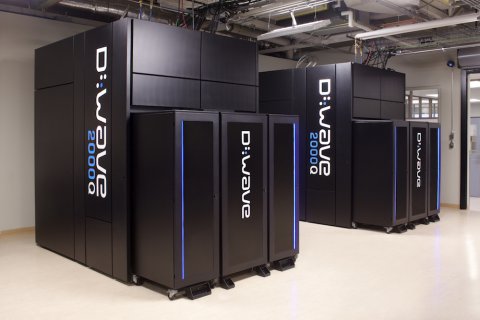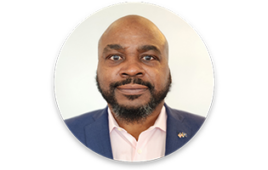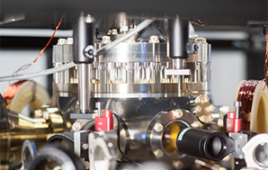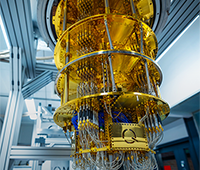
D-Wave Systems Inc., the leader in quantum computing systems and software, today announced general commercial availability of the D-Wave 2000Q™ quantum computer. D-Wave also announced the first customer for the new system, Temporal Defense Systems Inc. (TDS), a cutting-edge cyber security firm.With 2000 qubits and new control features, the new system can solve larger problems than was previously possible, with faster performance, providing a big step toward production applications in optimization, cybersecurity, machine learning, and sampling.
“D-Wave’s leap from 1000 qubits to 2000 qubits is a major technical achievement and an important advance for the emerging field of quantum computing,” said Earl Joseph, IDC program vice president for high performance computing. “D-Wave is the only company with a product designed to run quantum computing problems, and the new D-Wave 2000Q system should be even more interesting to researchers and application developers who want to explore this revolutionary new approach to computing.”
The new system continues D-Wave’s record of doubling the number of qubits on its quantum processing units (QPUs) every two years, which enables larger problems to be run, because increasing the number of qubits yields an exponential increase in the size of the feasible search space. Using benchmark problems that are both challenging and relevant to real-world applications, the D-Wave 2000Q system outperformed highly specialized algorithms run on state-of-the-art classical servers by factors of 1000 to 10000 times. The benchmarks included optimization problems and sampling problems relevant to machine learning applications.
The new anneal offsets control feature enables users to tune the annealing of individual qubits. Combined with a faster annealing time over previous D-Wave systems, problems can be solved more efficiently, improving application performance.
“D-Wave continues to advance the state-of-the-art in quantum computing with each generation of systems we deliver to customers,” said Vern Brownell, D-Wave’s CEO. “We are the only company selling quantum computers, and our growing ecosystem of users and developers gives us the benefit of their practical experience as we develop products to solve real-world problems. While other organizations have prototypes with just a few qubits in their labs, D-Wave is delivering the systems, software, training, and services needed to build an industry.”
The performance of the D-Wave 2000Q system was assessed in several ways:
- In benchmark tests, D-Wave QPUs outperformed competitive classical algorithms by 1000 to 10000 times in pure computation time. For these tests, D-Wave developed efficient CPU- and GPU-based implementations of highly specialized algorithms that are recognized as the stiffest competition to D-Wave QPUs, and ran them on the latest-generation classical computer servers. These benchmark problems in sampling and optimization were created to represent the structure of common real-world problems, while maximizing the size of the problem that could fit on the 2000-qubit QPU. The benchmark comparisons were relative to single CPU cores and 2500-core GPUs at the largest problem size. Link to technical white paper.
- The D-Wave 2000Q system outperformed the GPU-based implementations by 100 times in equivalent problem solving performance per watt. Power efficiency is a serious and growing issue in large-scale computing. The power draw of D-Wave’s systems has remained constant in successive generations, and is expected to continue to do so while the computational power increases dramatically. As a result, the computational power per watt is expected to increase much more rapidly for D-Wave QPUs than for classical systems. Link to technical white paper.
- The new anneal offsets feature provided a remarkable improvement over baseline performance in a small-scale demonstration of integer factoring, in some cases making the computation more than 1000 times faster than when the problem was run without this feature. Link to technical white paper.
Looking ahead to future developments, Jeremy Hilton, SVP Systems said, “The D-Wave 2000Q quantum computer takes a leap forward with a larger, more computationally powerful and programmable system, and is an important step toward more general-purpose quantum computing. In the future, we will continue to increase the performance of our quantum computers by adding more qubits, richer connections between qubits, more control features; by lowering noise; and by providing more efficient, easy-to-use software.”
D-Wave 2000Q quantum computers are available this quarter for shipment, with systems also accessible to subscribers remotely over the internet.



